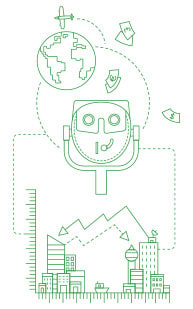The 2021 Fringe Benefits Tax (“FBT”) year is expected to be different from other years for a large number of employers.
 Client and staff functions have been replaced with zoom calls, and staff changed from working mainly in the office to working from home. The ATO has addressed this new normal, and the need to ensure a safe environment for employees and have put in place various concessions for FBT.
Client and staff functions have been replaced with zoom calls, and staff changed from working mainly in the office to working from home. The ATO has addressed this new normal, and the need to ensure a safe environment for employees and have put in place various concessions for FBT.
If you have employees and provide them with benefits or assets that are available for their own personal enjoyment or use, then you are expected to lodge an FBT return. As the year comes to a close, now is the time to review your FBT obligations.
The following table summarises the common fringe benefits we see provided to employees and some common mistakes made by employers:
Other common fringe benefits employers are encouraged to review are:
- Car parking fringe benefits
- Living away from home fringe benefits (particularly for fly in fly out employees).
- Remote area housing fringe benefits (tip: the payment of an employee’s mortgage repayments in a remote area will not be exempt, however, the reimbursement of their mortgage interest may be eligible for a 50% reduction).
- Expense payment reimbursements.
- Loans to employees.
This list does not cover all possible fringe benefits that you may be providing to employees. Due to the complex nature of FBT, you may be providing benefits to employees and not be aware of it. With the ATO having access to real-time information with Single Touch Payroll and data matching with various government services, it is more important now than ever to ensure you are reporting your fringe benefits to employees correctly.
Tips for preparing for the end of the FBT year
If you have not started the process already now is the time to:
- Check if you are providing fringe benefits to employees;
- Check that you have appropriate policies and procedures in place;
- Obtain copies of logbooks – if the logbook is four years old or no longer reflects the private use of the vehicle, ask the employee to complete a new one. if the logbook use has significantly changed due to COVID and working from home, ensure there is an updated logbook on file;
- Where you provide dual-cabs and are relying on PCG 2018/3, obtain declarations from employees that their private use falls within the criteria in the PCG. You may also want to put checks and balances in place to ensure the private use does fall within the criteria;
- Check your accounting records to ensure you have the required information to apply relevant exemptions or reductions;
- Obtain supporting documentation (invoices, bank statements, etc) from employees in respect of expenses reimbursed (e.g. for meal entertainment, a description of the function, the number of people who attended, the names of who attended, whether they were an employee/associate/spouse/client);
- Obtain required FBT declarations from employees (e.g. no private use declaration, loan fringe benefits declaration, living away from home declarations, relocation transport declarations).
WHAT’S NEW?
The ATO have brought in a number of concessions that allow for the changes due to COVID-19. The following are some of the key modifications to watch out for:
Car Fringe Benefits
- Employees can choose to keep a new logbook if their driving patterns and business usage is impacted by COVID-19 provided that the period reported accurately represents their usage throughout the year. A new special COVID-19 exemption also allows vehicles garaged at an employee’s residence during and due to COVID-19 restrictions, may be deemed not available for private use. This is still allowable even if the car is driven for the sole purpose of maintaining the car.
Ensure you have updated your days available for private use or logbooks if required.
 Keep in mind that the ATO can now check the car registrations that are registered to an employer. With this information, they can then cross-check to see if the employer has lodged an FBT return for the year.
Keep in mind that the ATO can now check the car registrations that are registered to an employer. With this information, they can then cross-check to see if the employer has lodged an FBT return for the year.
Entertainment Expenses
- Any emergency meals that are provided to employees due to being adversely affected or at risk of being affected by COVID-19 are exempt. This includes expenses incurred for providing food to an employee who cannot travel due to restrictions.
- Non-refundable costs for events employees could not attend due to cancellation, are also exempt.
Review your meal entertainment and ensure benefits provided as above are not treated as meal entertainment. You may also want to review your chosen method applied to the entertainment expenses, as the method previously used may not be the most effective outcome for this year.
Taxi/ Travel Expenses
- Emergency travel provided to employees who were, or at risk of being adversely affected by COVID-19 is exempt. This includes relocation costs, flights home to Australia and transport to temporary accommodation.
- Legislation was passed that now includes Uber and other ride-sourcing services as part of the taxi travel exemption.
Car Parking Fringe Benefits
- Car parking benefits will not be considered provided in the following circumstances:
- Closure of commercial parking stations within a 1km radius of your business premise.
- If on 1 April 2020 the lowest fee charged by all commercial parking station within a one-kilometre radius of your business was less than $9.15 for all-day parking
- The closure of a work car park due to COVID-19 will not form part of the availability period used to calculate the taxable value of a car space under the statutory method.
Ensure a review is done for the car parking rates within the business area as new rates may have been applied during lockdown periods. You are able to use these rates for your calculations. Check if you are under the $10m small business threshold due to a change in turnover for the year (Note: Job keeper subsidies are excluded from turnover). This means you (as the employer) are exempt from parking FBT in certain circumstances.
Exempt Benefits and Working from Home Benefits
 Two electronic devices can be provided to employees by employers under $10m turnover (or $50m turnover from 1 April 2021).
Two electronic devices can be provided to employees by employers under $10m turnover (or $50m turnover from 1 April 2021).- Employers that require employees to work from home or other locations could provide laptops, portable printers, and other electronic devices without having an FBT liability.
- Stationery, computer consumables, phone/ internet costs, monitor, mouse, and keyboards may be exempt under the otherwise deductible rule or minor benefits exemption.
- Counselling services provided to support an employee's WFH arrangement may be exempt from FBT. This includes counselling session undertaken by phone or an online platform to improve or maintain the quality of your employee's work performance.
Protective Equipment
- Items provided to staff to wear on work premise or to protect those who have physical contact with customers or clients while carrying out their duties are exempt.
Lodging the FBT return has also been made easier this year with the change of the payment due date for FBT to align with the lodgement due date of 25 June for those employers using tax practitioners who lodge FBT returns electronically.
HOW CAN RSM HELP?
There are many more COVID-19 concessions and updates to FBT for the 2021 year. Please get in touch with an RSM staff member to see if any apply to your business.




